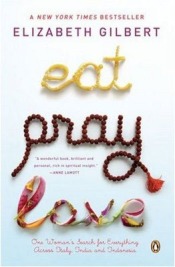Why Memoirs are Increasing in Popularity
March 26, 2010
Memoirs are not new, but they’ve recently become quite popular.
In Ben Yagoda‘s “Memoir: A History,” Yagoda writes:
“According to Nielsen BookScan, which tracks about 70 percent of U.S. book sales, total sales in the categories of Personal Memoirs, Childhood Memoirs, and Parental Memoirs increased more than 400 percent between 2004 and 2008.”
In an April 15, 2008 article, “Everybody has a story — but is it worth telling?” for CNN, Todd Leopold wrote:
“Memoirs rose in popularity during the ’90s on the backs of such books as Frank McCourt’s “Angela’s Ashes.” Now they’re in such demand that, in 2007, more memoirs were accepted by publishers than debut novels, according to Michael Cader’s Publishers Lunch newsletter, reported USA Today.
Current memoirs in the top 10 of The New York Times’ hardcover list include Julie Andrews’ “Home,” David Sheff’s “Beautiful Boy,” Jose Canseco’s “Vindicated,” Tori Spelling’s “Stori Telling” and Valerie Bertinelli’s “Losing It.” The top two books on the Times’ paperback nonfiction list are also memoirs — Greg Mortenson and David Oliver Relin’s “Three Cups of Tea” and Elizabeth Gilbert’s “Eat, Pray, Love.” Both have been on the Times list for more than a year.”
Since Leopold wrote that article, not much has changed. Almost two years later, “Eat, Pray, Love” is sitting at number 4 on the Paperback Nonfiction Bestseller list. The movie adaptation of the book, starring Julia Roberts and James Franco, is set to be released this summer.
So why now, more than ever, are memoirs so popular?
I know I’ve mentioned this in an earlier post, but a memoir is “a narrative composed of personal experience,” according to Merriam-Webster.com. A memoir is one way to share your personal story with the rest of the world, but it is not even close to the only way.
Technology has made it incredibly easy for us to spill our lives to anyone who will listen. I don’t think it’s a coincidence that memoirs started to sell more as the Internet spread. Blogs, Facebook, Twitter and lots of other Web sites all allow people to share their personal stories with friends, family and complete strangers.
And on television, it’s now impossible to escape reality shows, shows that often follow celebrities (Keeping Up with the Kardashians) and regular people (The Real World) as they go about their day-to-day lives and create their own narrative. Documentary style shows, such as Intervention and Hoarders, are based on the same format as, what Yagoda has dubbed, “misery” memoirs:
“ “misery memoir”: an account, usually by a noncelebrity, of childhood abuse or otherwise painful or difficult circumstances.”
I’m beginning to wonder if memoirs are the more prestigious form of reality shows? I don’t mean that Tila Tequila is the next Vladimir Nabokov; however, I think it’s impossible to ignore the similarities between shows like MTV’s True Life and memoirs such as Marya Hornbacher‘s “Wasted: A Memoir of Anorexia and Bulimia.”
